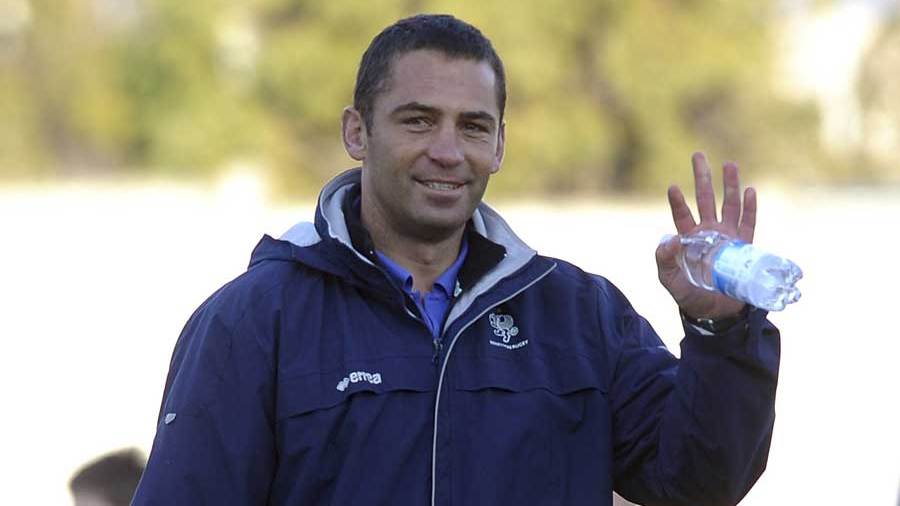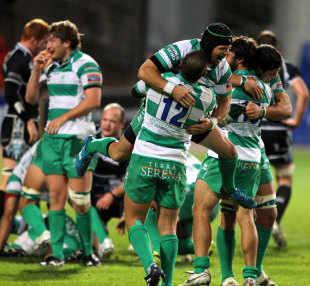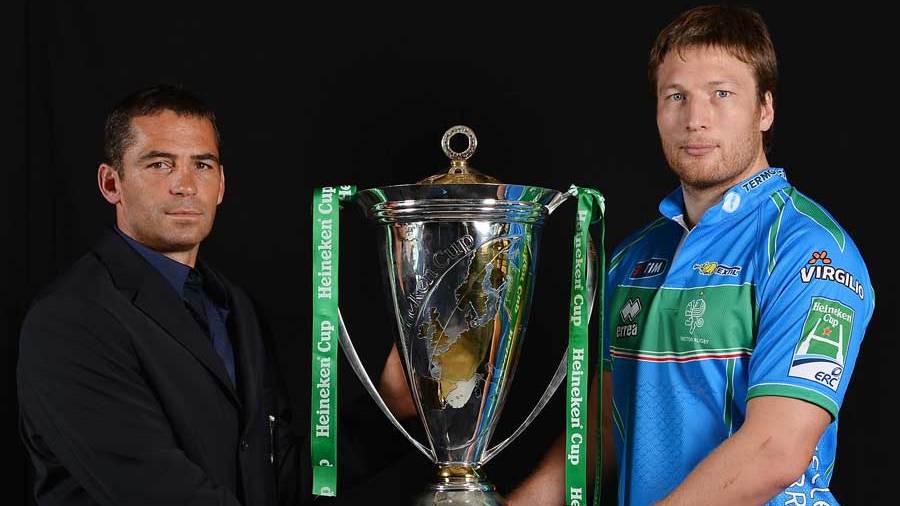|
Italian Rugby
The united brothers of Treviso
Tom Hamilton
September 6, 2013

Franco Smith will bid farewell to Treviso at the end of the season © Getty Images
Enlarge
"I have thought about it a great deal and I have prayed. I will not renew my contract with Benetton." They were the words followers of Italian rugby and specifically Treviso never wanted to hear. Franco Smith, the man who has done so much to take the Venetian club from domestic anonymity in Italy on to the European stage, will leave the club at the end of the season. Treviso, a small town of around 82,000 inhabitants, is renowned for its prosecco-producing skills and also for being the place where tiramisu was created. But the scene which greeted Smith when he turned up to coach Treviso in 2007 was a far cry from those decadent, idiosyncrasies of Italian life. He was no stranger to the Italian side when he took over from Craig Green a little over six years ago. At Test level Smith - who played in both the centres and at fly-half - won nine caps for the Springboks and after spells with Free State Cheetahs, Griquas and the Blue Bulls, he journeyed to Newport with Gary Teichmann and then hopped across to Italy and ran out for Bologna and then Benetton Treviso. "When I played in Italy I saw the same potential and the same desire to win as I saw in South Africa and Wales," Smith told ESPN. "There was fertile earth. There was talent to be unearthed." Two years at the Cheetahs as part of their coaching set-up followed, between 2005 and 2007, and then the call came from Treviso. "They only had one coach, Craig Green, and I helped him with the backline," Smith continued. "There was no video being done and there was a small gym. Obviously there were changes to be made. "I explained to the board that for them to fulfil their objectives for Treviso, they had to produce more players for the Italian national team, obviously continue winning the league and also get respect from Europe with the idea of going into the Celtic League one day."
So it was a case of an Italian side, looking to a South African to make them a formidable Azzurri-infused outfit. A mishmash of cultures, but as Smith said there "was fertile earth". The club had already benefitted from overseas recruits such as John Kirwan and Michael Lynagh but Smith knew the future of Treviso relied on growth on and off the field. Central to this was increasing the numbers of players regularly running out for the Azzurri and whatever happened to the infrastructure, he wanted to root everything in Italian culture. "I'm really proud to say we are an Italian club and it's not a foreign club," Smith said. "We call ourselves the United Brothers of Benetton and everyone who has played here knows that we play for each other. We cry together, we have joy together but we did it in an Italian way and that's what's special about Benetton. It's not a foreign club, it belongs to Italy and it has its own way of doing things." When he took his post in 2007, it was an Italian side, but one possessing sparse numbers of representatives on the Test stage. They had just one player in Italy's 2007 World Cup squad. Four years later they had 13. Smith's approach was organic growth - get the right mixture of nutrients right off the field and you reap the benefits on the turf. In 2010 came a pivotal moment in the club's history, they were included in the Celtic League - now named the RaboDirect PRO12. It was a shock to the system for Smith's players who were used to playing in the Italian Championship, a competition they won six out of eight times prior to their inclusion in 2010. The contrast was huge. "It was like night and day," Smith recalls. "The players they had to learn to train hard. They had to learn what it meant to be a professional whether it be their dietary requirements, their medical approach or gym work. All things they weren't used to. Fortunately we had created a good work ethic and the players were ready to make that step up." And step up they did. While the now defunct Aironi and Zebre have floundered in the PRO12 - mustering just five victories between them over the last three years - Treviso have made a good account of themselves winning 26 games. Last season they finished in seventh, a record high and it was a campaign which included a 34-10 thrashing of Munster.

Treviso enjoy a win over Glasgow Warriors in September 2011
© Getty Images
Enlarge
Treviso are now part of the PRO12's furniture. But the future of competition where they have recorded perhaps their most famous wins, the Heineken Cup, is shrouded in doubt. Treviso have enjoyed some memorable days with Smith overseeing victories against Perpignan and Biarritz and he hopes the competition will continue beyond the end of this season. "I am probably one of the coaches who has played in the tournament the most, but also one of the coaches who has lost the most," Smith added. "It will be a pity if it's lost. I was unhappy when we swapped from the cotton jerseys to all this streamlined stuff and I preferred a leather ball to the new balls. "A new competition might bring some new excitement but the biggest complement you can pay to the Cup is that it has always been the flagship of European rugby and it's a great competition. For Italy it's important for the teams to stay in that top competition." The Treviso project is far from complete, Smith hopes they will bring in a second team to help the 42-man squad have more match opportunities as they seek to bring through "the next group of players to emulate the Pavanello's, the Zanni's and the Cittadini's". But Smith will not be there to witness any more development from the end of this season. "I'm 41-years-old and I just felt I have contributed as much as I can. Not just for me, but also for Benetton it could be good for a bit of change. I'm in my seventh season here. I'm ready a new challenge. I can't say it's just the players that have grown but I feel I have grown a lot. I felt it was just time to draw a line in the sand." Wherever Smith ends up is yet to become apparent. He may journey back to South Africa but you can imagine there will be a fair number of European-based clubs keen on his services. But throughout our talk, it was clear he did not want to be painted as some saviour of Treviso. Far from it. When he sits down in 20 or 30 years time and reminisces about the time he coached Treviso - romantics will hope he is sipping something fizzy and perhaps grazing on a coffee-infused dessert - it will not be the wins over Biarritz and Perpignan that immediately spring to mind. "Developing more players who have played for Italy has brought me great satisfaction. It's not all down to me though, please don't get that from it, but it's nice to see the players come through and to grow that number. "I think we are getting that respect in Europe as a team and not just from the public or referees, or from one player to another, but from everybody. It was important to be recognised as a team and that was my objective from the start. I think Treviso is now on the map and that's the biggest success as I look back." 
© Getty Images
Enlarge
© ESPN Sports Media Ltd Tom Hamilton is the Assistant Editor of ESPNscrum.
| |||||||||||||||
Live Sports
Communication error please reload the page.
-
Football
-
Cricket
-
Rugby
-
- Days
- Hrs
- Mins
- Secs
F1 - Abu Dhabi GP
Abu Dhabi Grand Prix December 11-131. Max Verstappen ()
2. Valtteri Bottas (Mercedes)
3. Lewis Hamilton (Mercedes)
4. Alexander Albon ()
5. Lando Norris ()
6. Carlos Sainz Jr ()
-
ESPNOtherLive >>
Darts - Premier League
Golf - Houston Open
Snooker - China Open
Tennis - Miami Open

